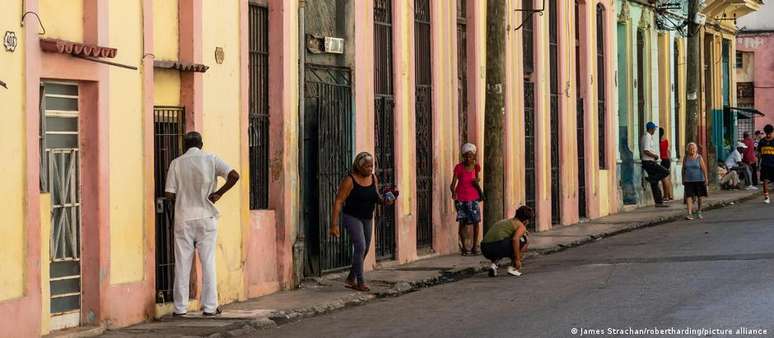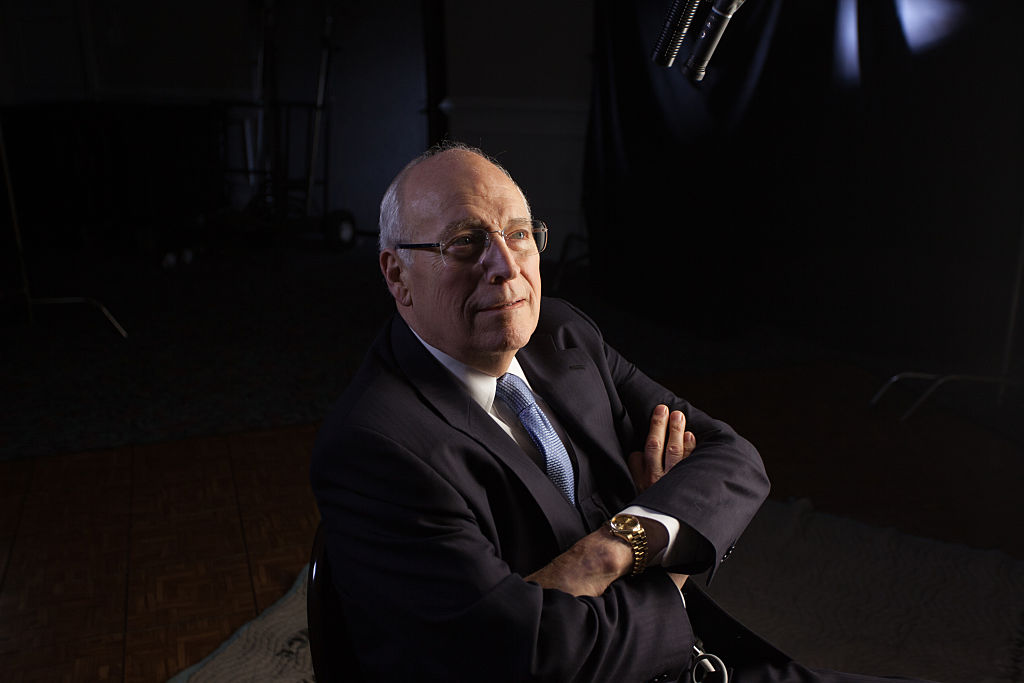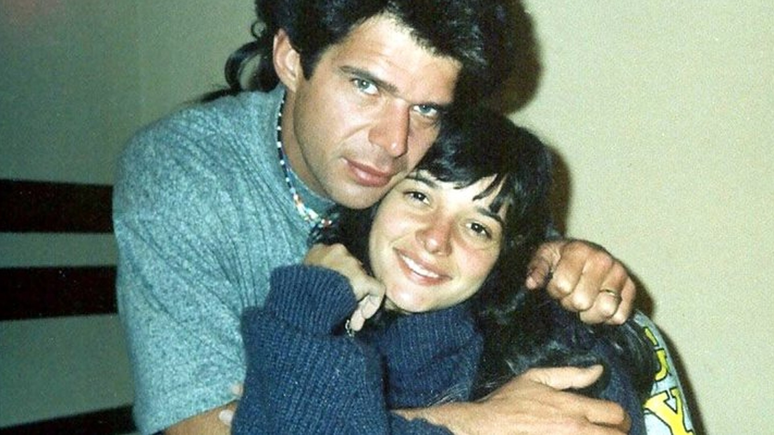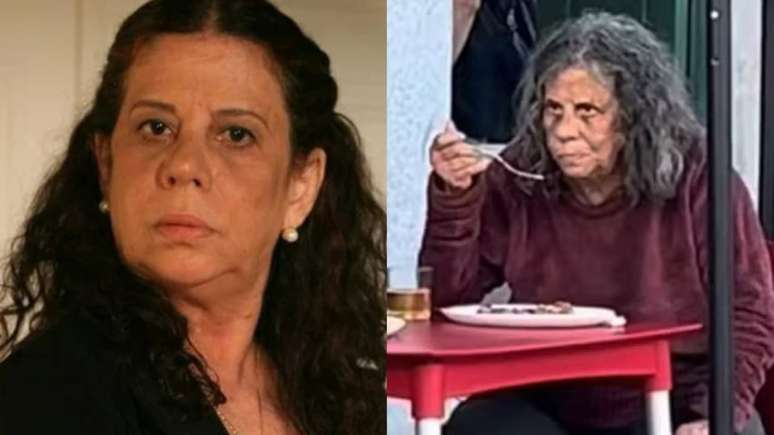The lack of wheat flour to produce subsidized bread has worsened the food crisis on the Caribbean island. DW spoke to two Cuban pensioners, who explain the situation and how they are dealing with it: Cuba lacks bread, a fundamental food, the scarcity of which symbolizes the severity of the hunger affecting the Caribbean country.
Subsidized bread is sold for one Cuban peso, and residents are entitled to a limited number of loaves per month, noted on a ration card.
But there is no wheat flour to produce food. In private bakeries it is still possible to find bread, but at a much more expensive price and inaccessible to a large part of the population.
The government acknowledges the bread shortage and says the problem will continue until at least the end of March.
The Food Monitor Program, an observatory that monitors food security in Cuba, says that some Cubans are malnourished. And many schools no longer offer breakfast to students, and an insufficient lunch.
A survey by the Cuban Observatory for Human Rights published last September found that 88% of Cubans live in extreme poverty, a situation that forces many to try to emigrate.
Protesting in the streets is an alternative only for the fearless. The latest wave of demonstrations, in 2021, were harshly repressed by the government and many ended up in prison.
DW contacted two pensioners in the east of the country through the Food Monitor programme. They reported how they are coping with the situation, but prefer to remain anonymous. That’s why we’ll call them Alicia and Felipe. Cuba currently has about 1.6 million pensioners, according to state data.
DW: What’s an average day in your life like? Is it difficult to get bread?
Alicia (80 years old): The first thing I do is see if the water is coming so I can pump it into the storage containers. Then I go to the bodega to buy subsidized bread. The bodega is open from 8:00 to 12:00 and from 16:00 to 18:00. You have to go early because the delivery lady leaves just before 11am and only returns in the afternoon, the time when most people get home from work. Sometimes you arrive early at the bodega, but the bread takes a long time to arrive, because it is made in the bakery. So you have to go to the bodega several times to see if it has arrived.
Felipe (78 years old): I get up early, between 5 and 5.30. Afterwards I take a long walk through the shops, markets and bodega to see what has arrived and if there is anything I can buy for home. For example, we are at the end of February and there is still a lack of food, among the five or six that arrive in the basic food basket every month. Bread is the first thing I have in the morning. It’s practically the only thing you can eat for breakfast, because there’s no milk or yogurt left, and coffee is also in short supply.
How long does the queue usually take to buy subsidized bread?
Alicia: The queue to buy bread at my bodega isn’t very long anymore because only pensioners go there. Right now the children are at school and the parents are working. But this depends on each winery. My niece faces a long line because in their bodega they make the bread right there and the area where this bodega delivers is very large. It used to be easier to buy extra bread at the bodega, but after the pandemic it has become much more difficult, because sometimes not everything arrives.
Felipe: My bodega is nearby, half a block away. When I see a long line, I go home and wait to go a little later; otherwise I wait to buy at the bakery, which usually takes about 15 minutes. Other people who don’t live so close have to wait in a long queue in the morning, which can last about an hour.
Do you also buy bread from private bakeries? What is the situation there?
Alicia: Sometimes you have to buy bread from private bakeries or from people who sell it on the street. But it is not always possible to do this because it is very expensive. Subsidized bread at the bodega costs 1 peso, but at the private bakery it costs 25 or 30 pesos per loaf. One like the one at the bodega. Hard-crust bread or other types sold in private bakeries or candy stores can cost up to 500 pesos or more. In establishments that charge average prices but produce good quality bread, the queues are enormous. You can queue for two hours.
Felipe: Yes, private bakeries tend to have short queues, on average around 15 minutes. State bakeries also often offer the possibility of purchasing so-called “liberated bread”. In this case the queues I see last about two hours, because there is much more demand and the price is a little lower than in private shops.
Although they usually offer bread most days, the main problem is the prices. For example, bread usually costs around 25 pesos each, so I can easily spend between 200 and 500 pesos when buying bread for home. In my house my son and my grandchildren also buy bread, but, for example, in five days of February when I bought bread I spent 200 pesos. Then I bought packs of biscuits in two days, at 300 pesos each, because there was no more bread. And yesterday, the 25th, I had to spend 700 pesos on biscuits. So far this month it amounts to almost 1,500 pesos of bread alone. My pension is 1,600 pesos. As you can see, I don’t even have money to buy bread for my whole family.
How many people in your house do you have to buy bread for?
Alicia: There are six people living in my house and two of them are not on the state registry. Therefore they do not receive bread from the quota. It’s difficult because there are two school-age children at home and you have to give them bread so they don’t go to school on an empty stomach. Sometimes we cut the leftover bread into slices and toast it so at least we can all eat a slice, but usually we also save it for the afternoon snack of the children, who come home from school hungry, because lunch there is terrible. who are always hungry.
Felipe: There are seven of us at home, but one of my nephews lives with us three or four days a week.
Have you been hungry recently or have you ever gone to bed without eating?
Alicia: In my case, I rarely went to bed without eating because the granddaughter I live with prioritizes feeding me and her children. But it’s normal to eat only one meal a day because there isn’t enough for all of us to eat three meals a day. There are also many elderly people in the neighborhood who are alone because their children or relatives have left or do not want to take care of them. They are very hungry and only depend on what they can buy at the bodega, which is not even enough for a week. The day the bread doesn’t arrive, they become twice as hungry.
Felipe: Thank God I didn’t go hungry. But I know people who pass by. From time to time some people stop by the house asking for something to eat, especially elderly people. They say they are hungry and ask for bread or something to eat. Furthermore, near my house there is an elderly man who lives alone and several times I had to give him a piece of bread so he could eat something. I don’t know if they sleep without eating, but during the day they are hungry.
What would you like to change in Cuba and what do you plan to do in the future if the situation does not improve?
Alicia: I don’t know, but something has to change. The only thing left for my generation is to be alone. Young people leave the country because no one can tolerate hunger. The few who did something ended up in prison. We elderly people become more and more helpless because the State does not take care of us. Sometimes I think that the people in government are waiting for us to die so they have to distribute less bread.
In Cuba there is a hunger for many things. How to explain to a child who says he’s hungry that you don’t have food to give him, because sometimes there isn’t even water to fool his stomach. This is very difficult to live with. They are children who grow up thinking that hunger is something natural, when it shouldn’t be.
Felipe: I would like the government system to change. If the situation doesn’t improve, I have nowhere to run. I think I’ll have to stay here until I starve. Given my age, I can only wait for things to continue to get worse. Perhaps one day people will take to the streets, as happened on July 11, 2021, and there will be disproportionate state violence in which sectors of power, such as the army, will decide to intervene. This is what I predict for Cuba, sooner or later there will be a new social explosion, more violent than the previous one.
Source: Terra
Rose James is a Gossipify movie and series reviewer known for her in-depth analysis and unique perspective on the latest releases. With a background in film studies, she provides engaging and informative reviews, and keeps readers up to date with industry trends and emerging talents.







